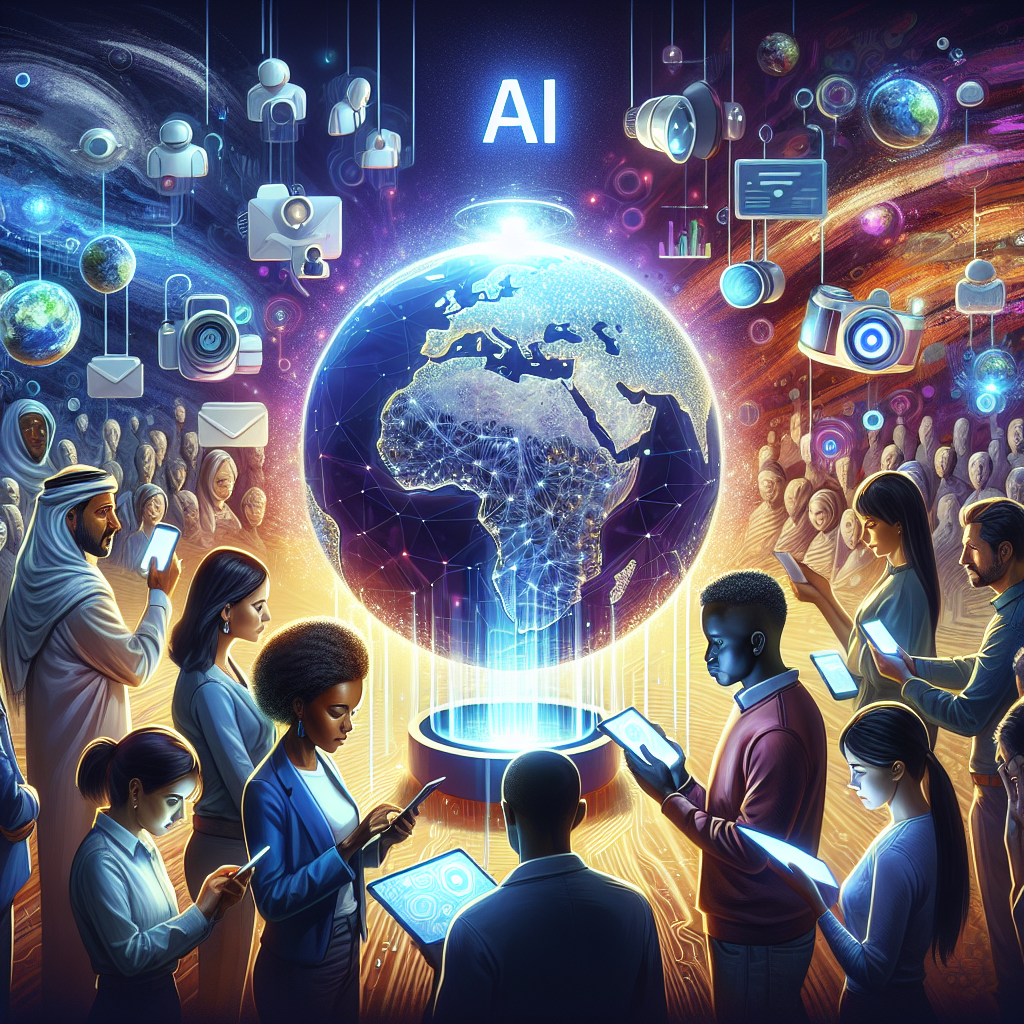Empowering Communities: The Impact of AI Democratization
In recent years, the democratization of artificial intelligence (AI) has become a hot topic in the tech industry. This trend refers to the increasing accessibility of AI tools and technologies to individuals and organizations of all sizes and backgrounds, rather than being restricted to large corporations or research institutions. As AI becomes more ubiquitous and easier to use, its potential to empower communities and drive positive change is becoming increasingly evident.
AI democratization is enabling communities to harness the power of data and machine learning algorithms to address complex challenges and improve quality of life. By making AI tools more accessible and affordable, communities are able to develop solutions that are tailored to their specific needs and priorities. This has the potential to level the playing field and reduce inequalities, allowing smaller organizations and underprivileged communities to compete on a more equal footing with larger, more resource-rich entities.
One of the key ways in which AI democratization is empowering communities is through the development of customized solutions for local challenges. For example, AI-powered tools can be used to analyze data on crime rates in a specific neighborhood and predict where and when crimes are most likely to occur. This information can then be used to deploy resources more efficiently and effectively, helping to reduce crime and improve public safety in the community.
Another area where AI democratization is making a significant impact is in healthcare. By making AI tools more accessible, communities are able to develop personalized treatment plans for patients based on their individual health data and genetic profiles. This can lead to more effective and targeted interventions, ultimately improving health outcomes and reducing healthcare costs.
Furthermore, AI democratization is enabling communities to better understand and address social and environmental issues. For example, AI algorithms can be used to analyze satellite imagery and identify areas at risk of natural disasters, allowing communities to take proactive measures to mitigate the impact of these events. AI can also be used to analyze social media data to identify trends and patterns in public sentiment, helping communities to better understand the needs and concerns of their residents.
Overall, AI democratization has the potential to revolutionize the way communities operate and interact with each other. By providing access to powerful AI tools and technologies, communities are able to innovate and collaborate in ways that were previously unimaginable. This can lead to more efficient and sustainable solutions to complex problems, ultimately improving quality of life for all members of the community.
FAQs:
Q: What are some examples of AI tools that are being democratized for community use?
A: Some examples of AI tools that are being democratized for community use include predictive analytics software, natural language processing tools, and computer vision algorithms. These tools can be used to analyze data, automate tasks, and make predictions in a wide range of applications, from healthcare to public safety.
Q: How can communities access and use AI tools?
A: There are a growing number of platforms and services that are making AI tools more accessible to communities. These platforms often offer user-friendly interfaces and pre-trained models that can be easily customized for specific applications. Additionally, many organizations offer training and support to help communities learn how to use AI tools effectively.
Q: What are some of the potential challenges of AI democratization?
A: One potential challenge of AI democratization is the risk of bias and discrimination in AI algorithms. Without proper oversight and regulation, AI tools can inadvertently perpetuate existing inequalities and disparities. Additionally, there may be concerns about data privacy and security when using AI tools in community settings.
Q: How can communities ensure that AI tools are used ethically and responsibly?
A: To ensure that AI tools are used ethically and responsibly, communities should prioritize transparency and accountability in their AI projects. This includes conducting thorough audits of AI algorithms, collecting diverse and representative data sets, and involving community members in the decision-making process. Additionally, organizations can consider implementing ethical guidelines and codes of conduct for AI use.

